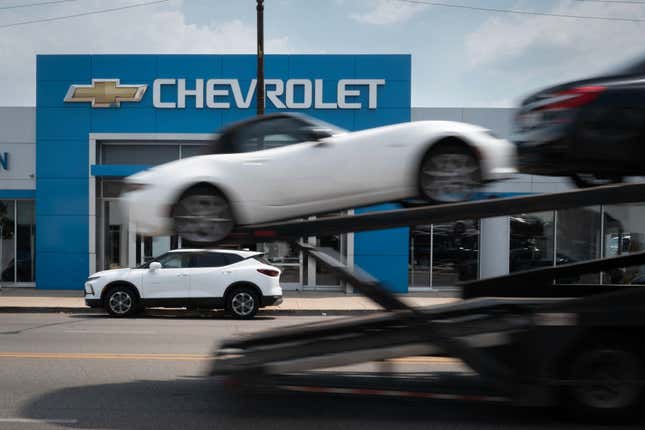
In This Story
President Donald Trump offered some tariff-related relief for the auto industry on Tuesday, but one major analyst thinks the damage is already done.
Trump signed an executive order that prevents tariffs from “stacking” on top of one another. In other words, automakers already subjected to the newly administered 25% levy on auto imports will not also have to pay a 25% duty on steel and aluminum, or on imports from Mexico and Canada. Another executive order will allow carmakers to get partially reimbursed for the tariffs they pay over the next two years.
But Wedbush analysts Dan Ives and Sam Brandeis think this is too little, too late.
“While this sounds good on paper (less bad then the original auto tariff slate), a U.S. car with all U.S. parts made in the U.S. is a fictional tale not possible today and many factories/production hubs could take 4-5 years to build in the U.S.,” they wrote in a note Tuesday.
They called the current tariff situation “untenable” for the auto industry, adding that many “U.S. made” cars import over 40% of their parts from abroad. The analysts believe that the average sticker price will rise by between $5,000 and $10,000 once automakers run through their pre-tariff inventory.
“This continues to be a Twilight Zone situation for the entire automaker industry which continues to be paralyzed further cost increases and uncertainties that will change the paradigm for the U.S. auto industry for years to come [if] this stays into effect,” they wrote. “We believe the auto tariffs in their current form adds up to $100 billion of costs annually to the auto industry and will essentially get passed directly onto the consumer and clearly erode demand on Day 1 of tariffs.”
Based on a second executive order signed by Trump aboard Air Force One en route to a rally in Michigan on Tuesday, carmakers will be able to apply for reimbursements on tariffs for auto parts for up to 3.75% of a vehicle’s first-year value. That number will drop to 2.5% in the second year before phasing out completely.
But the Wedbush analysts think the damage is already done. They also wrote that they’re interested in hearing from General Motors (GM-4.40%) during its earnings call Thursday — a call the automaker delayed while it waited for more clarity on the ever-changing tariff situation. GM also pulled its 2025 profit guidance earlier this week as it awaited more information.
“We look forward to hearing from GM” on how the company plans “to navigate these moving goal posts on tariffs and the potential impact on demand/model launches ahead,” Ives and Brandeis wrote.